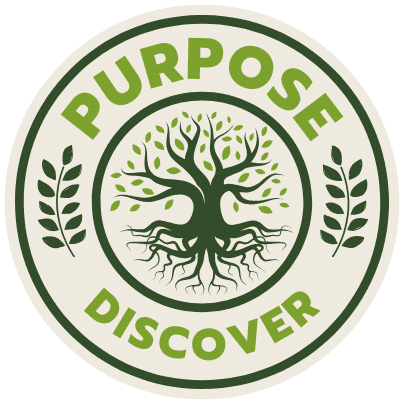There’s a kind of magic that happens when you lean into empathy. Really lean in. Not that soft, syrupy kind that sounds good on a greeting card, but the gritty, sometimes uncomfortable practice of seeing the world through someone else’s eyes. It’s like a secret ingredient that transforms the ordinary task of living into a deeply fulfilling journey. And here’s the kicker: when you cultivate empathy, you don’t just become a kinder person—you deepen your calling in ways you might never expect.
Have you ever noticed how the people who speak most passionately about their purpose often explain it with an unmistakable humility? They’re not shouting from the rooftops about their achievements or their grand plans. Instead, they talk about connections—real, messy, human connections. That’s empathy pulling the strings behind the scenes, guiding how they engage, what they choose, and why they insist on pushing through obstacles. Without empathy, a calling can feel like some abstract mountain to climb. With it? You’re invited into a journey that breathes with meaning.
Why Empathy Isn’t Just a Buzzword
Too often, empathy is brushed off as a “nice to have.” Something soft and fluffy, better suited for therapy sessions or heartfelt novels. But real empathy requires courage and intentionality. It disrupts your own worldview and challenges comfortable assumptions. Think about it—putting yourself in someone else’s shoes means momentarily setting aside your own story, your biases, your fears. It’s not easy. But it’s in that loosened grip on self that space opens for deeper insight.
When you nurture empathy in your life, your purpose shifts from self-centered achievement to something far richer. It becomes relational, dynamic, transformative. Suddenly your goal isn’t just personal success or recognition; it’s about how your actions ripple out to affect others, how they can ease suffering or spark joy or fuel change. That’s where your calling grows roots.
How Empathy Shapes What You Stand For
Imagine trying to pursue a calling without empathy. It would be like navigating a dark maze with only the barest flicker of light. You might make progress, sure, but often it’ll feel directionless, disconnected from real need. Empathy is the flashlight, illuminating the pathways others travel and revealing the nuances behind their struggles and hopes.
There’s a lesson here: when your work is rooted in empathy, it gains authenticity. You aren’t just pushing your agenda; you’re responding to genuine human experience. This makes your mission resonate more deeply, because your voice carries understanding, and people feel it. It’s the difference between preaching at someone and actually walking alongside them.
Empathy also teaches patience. When you truly get where another person is coming from, you stop expecting immediate change or gratitude. You let go of timelines and control, recognizing that transformation—both yours and theirs—takes messy time. This patience is crucial for any meaningful calling, which is rarely a sprint and more often a marathon filled with stumbles.
Real-Life Ripples: Empathy in Action
Want proof that empathy amplifies your calling? Look at the people who inspire you most. The activists who fight tirelessly for justice, the teachers who refuse to give up on struggling students, the healers who listen more than they speak. Their secret isn’t some superhuman strength; it’s how deeply they empathize with the experiences around them.
Take the story of Malala Yousafzai. She could have chosen silence after her attack, retreated into safety. Instead, her empathy for girls denied education worldwide fueled a mission that transformed millions of lives. Her calling wasn’t just about standing up for herself—it was about lifting others from hardship through shared understanding.
On a smaller scale, empathy weaves magic in everyday encounters. Picture this: a manager who takes the time to listen to a frustrated employee isn’t just ticking a box—they’re nurturing loyalty and sparking innovation. Someone volunteering at a shelter sees beyond headlines to the real people living through heartbreak and hope. These moments might seem small, but they compound into a life that matters.
Why We Resist Empathy Even When We Know It’s Powerful
Here’s something surprising: most of us crave connection but shy away from empathy because it demands vulnerability. Stepping into someone else’s pain can be scary, exhausting, even overwhelming. It shakes the comfortable walls we’ve built around ourselves. That discomfort, while crucial, can make us retreat back into solipsism or numbness.
But skipping empathy comes at a price. Without it, your calling risks becoming hollow or misguided. You may achieve goals, earn recognition, or secure stability, but miss the heartbeat underneath. This disconnect breeds frustration — why does it feel like something’s missing, even when you’re “successful”?
Another hurdle is empathy fatigue, especially for those on the frontlines of caregiving or activism. When the intensity of feeling with others gets too much, burnout lurks around the corner. That’s why cultivating empathy wisely matters—balancing openness with self-care, boundaries with generosity.
How to Cultivate Empathy and Enrich Your Calling
So how do you build this muscle? Empathy isn’t a switch you flip; it’s a habit formed daily. Here’s a few moves you can try out:
🌱 Listen like you mean it. Forget multitasking. When someone talks, really absorb their story without planning your reply. Let silence hold its space.
🌱 Ask questions, and then shut up. Curiosity opens doors. When you genuinely want to understand, the walls between people come down.
🌱 Try perspective shifts. Imagine yourself not just in another person’s shoes, but in their whole neighborhood, history, emotions. This exercise is unexpectedly powerful.
🌱 Consume diverse stories. Books, films, podcasts from voices different from your own expand your mental map of humanity. They’re empathy fuel.
🌱 Practice empathy for yourself. Being kind to your own messiness makes it easier to be patient with others. Without self-compassion your empathy cracks.
It’s tempting to think empathy might dilute your focus or slow you down. But truth is, it does the opposite. It sharpens your compass. It clarifies what truly matters to you. Your calling not only becomes clearer but more aligned with reality—and that’s powerful.
Start small. Maybe it’s noticing a colleague’s mood today, or writing a thank-you note that recognizes someone’s effort. Empathy in these moments sets off ripples. Those ripples pull your purpose closer to your heart and to the world it serves.
If you find yourself wondering what your purpose is or how to connect with it more authentically through empathy, resources like What Is Your Purpose offer thoughtful guidance and inspiration. They remind us that finding and deepening our calling is a living, breathing process, not a destination.
Empathy is the wild card in the game of fulfillment. It shakes things up, breaks patterns, and asks us to be more present, more honest, and more human. That’s exactly what your calling needs—not a script, but a pulse. So, what would happen if you made empathy your north star? You might find your purpose not only deepening but glowing with newfound life.

